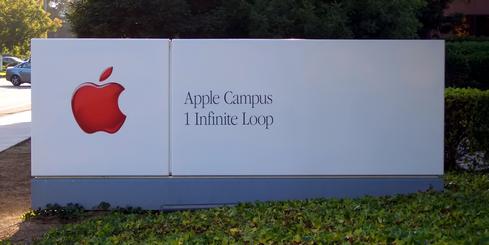Apple, IBM Partner for Healthcare AnalyticsApple, IBM Partner for Healthcare Analytics
Health data collected on Apple devices will be stored in IBM's Health Cloud for analysis by medical professionals and researchers.


10 Apple Acquisitions: What Do They Mean?
10 Apple Acquisitions: What Do They Mean? (Click image for larger view and slideshow.)
IBM this week announced a partnership with Apple to further advancements in health analytics. This initiative, which complements IBM's new Watson Health unit, aims to leverage big data analytics systems and secure open data storage to bring greater insight to medical researchers.
As part of the collaboration, IBM's Health Cloud and Watson cognitive computing will harness health data that Apple customers submit to iOS apps through its ResearchKit and HealthKit platforms. The goal is to use that information to further medical research and improve customer health.
Apple's HealthKit is designed to help developers create health apps that can help consumers manage their health and fitness information, monitor their behavior, and stay on top of treatments. ResearchKit is an open source software framework that enables medical researchers to further medical studies. It allows consumers to volunteer their health data to assist in medical research.
[Apple's ResearchKit Targets Fitness, Healthcare Markets]
Finding health data isn't the challenge in healthcare analytics -- the information is already there. IBM reports that there are 16,000 global hospitals collecting data on patients, of whom 4.9 million will use remote monitoring devices by 2016. Personal health and fitness trackers collect terabytes of data each day, most of which goes untouched.
Eighty percent of health data is unstructured, stored away in forms ranging from lab results to medical transcripts. The challenge in furthering big data for healthcare is analyzing this ocean of information to create actionable insights.
As IBM receives Apple's data, it will de-identify and store it in a secure and scalable cloud system. Researchers, doctors, and other health professionals will be able to view and share the data, as well as access data-mining and predictive analytics capabilities.
Apps that run through HealthKit and ResearchKit will be connected to Health Cloud through a delivery platform. This process will facilitate easy data storage, aggregation, and modeling. It will also have the ability to combine information with other research.
"Our deep understanding and history in the healthcare industry will help ensure that doctors and researchers can maximize the insights available through Apple's HealthKit and ResearchKit data," said John E. Kelly III, SVP for IBM's research and solutions portfolio.
Going forward, IBM also plans to leverage HealthKit to develop a collection of enterprise wellness apps. These offerings will fall under the title "IBM MobileFirst for iOS." They aim to help businesses play a greater role in working with employees to manage their health needs.
Attend Interop Las Vegas, the leading independent technology conference and expo series designed to inspire, inform, and connect the world's IT community. In 2015, look for all new programs, networking opportunities, and classes that will help you set your organization’s IT action plan. It happens April 27 to May 1. Register with Discount Code MPOIWK for $200 off Total Access & Conference Passes.
About the Author
You May Also Like






